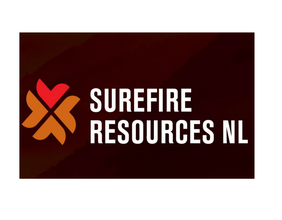Highlights
- Active shareholder challenging corporate management.
- Asks tough questions at annual meetings.
- Promotes accountability and transparency.
Overview
A "gadfly" is a term used to describe an outspoken and proactive shareholder who actively engages with corporate management, often by attending annual meetings and posing challenging questions. These individuals typically own shares in multiple companies and use their positions to hold executives accountable, advocating for transparency and ethical business practices. While they may be seen as disruptive by some corporate leaders, gadflies play a crucial role in promoting good governance and protecting shareholder interests.
Role and Purpose
Gadflies act as watchdogs within the corporate world, ensuring that management remains answerable to shareholders. By asking hard-hitting questions and raising critical issues, they challenge executives to justify their decisions and strategies. This scrutiny helps maintain checks and balances within the organization, preventing mismanagement and promoting long-term value creation.
Characteristics of a Gadfly
Gadflies are typically well-informed and persistent shareholders who:
- Own Stock in Multiple Companies: They strategically invest in various corporations to gain the right to attend shareholder meetings and voice their concerns.
- Pose Tough Questions: They are known for asking direct and often uncomfortable questions about executive compensation, corporate strategy, social responsibility, and ethical practices.
- Advocate for Change: Gadflies frequently push for policy changes, governance reforms, and enhanced transparency in financial reporting.
Historical Significance and Notable Examples
The tradition of gadflies dates back to the early 20th century when activist shareholders began questioning corporate policies. Some notable examples include:
- Lewis D. Gilbert: One of the earliest and most influential gadflies, he attended hundreds of shareholder meetings, advocating for minority shareholder rights.
- Evelyn Y. Davis: Known for her outspoken style, she was a prominent gadfly who regularly confronted CEOs about executive pay and corporate governance issues.
- John Chevedden: A modern-day gadfly known for submitting shareholder proposals aimed at improving corporate governance practices.
Impact on Corporate Governance
Gadflies play a vital role in enhancing corporate governance by:
- Promoting Transparency: Their probing questions force companies to disclose more information, ensuring that all shareholders have access to accurate and comprehensive data.
- Driving Accountability: By holding management accountable for their actions, gadflies help prevent conflicts of interest, financial misstatements, and unethical practices.
- Influencing Policy Changes: Their activism has led to significant changes, such as reforms in executive compensation policies, environmental practices, and shareholder voting rights.
Criticisms and Challenges
Despite their positive impact on governance, gadflies often face criticism and resistance from corporate boards and executives. They are sometimes perceived as disruptive or self-promotional. Additionally, companies may employ tactics to limit their influence, such as changing meeting rules or restricting shareholder proposals. However, regulatory bodies like the SEC have implemented rules to protect shareholder rights, ensuring that gadflies can continue to play their watchdog role.
Conclusion
Gadflies are essential participants in the corporate governance landscape, serving as vigilant shareholders who challenge management to maintain transparency, accountability, and ethical practices. By asking tough questions and advocating for positive change, they help protect shareholder interests and promote sustainable business practices. While they may be viewed as contentious figures, their contributions ultimately enhance the integrity and credibility of financial markets.






